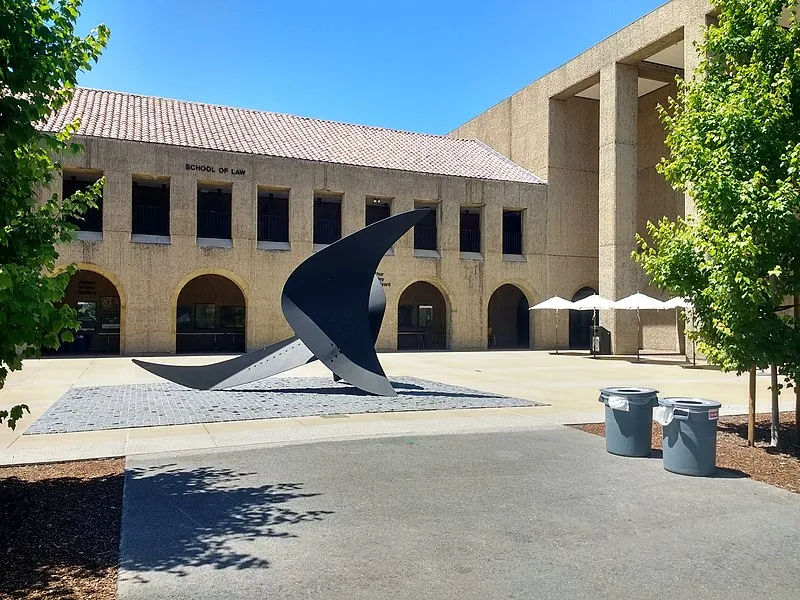Every year, some undergraduates enroll in graduate-level courses to further explore academic and professional interests. This year, Andrew Conkey ’23 worked on problem sets with a formal federal reserve employee in his graduate-level econometrics class.
“You don’t have that kind of diversity of experience necessarily in an undergraduate class,” Conkey said.
Stanford Law School (SLS), the Graduate School of Business (GSB), the School of Medicine and other graduate schools all allow undergraduates to enroll in their classes. Graduate level classes are sometimes cross-listed with undergraduate programs but often require special permission from the instructor that can involve an application process.
Alexa Gold ’22, copy editor for The Daily, has taken multiple classes at SLS, including one focused on the First Amendment, to understand the law school experience. The classes required her to be analytical and creative at the same time, which Gold found to be a “fascinating and interesting combination of skills to use simultaneously.”
Like Gold, Maia Brockbank ’21 has also taken multiple SLS classes, including LAW 7036: “Law of Democracy.” She said the enrollment process varied depending on the course, with some requiring applications and instructor consent while others were completely open to undergraduate enrollment. According to Brockbank, the applications weren’t too intensive and seemed to focus on gauging commitment and interest in the course material.
A history and political science double major, Molly Campbell ’21 has taken two graduate-level political science classes. She said she enjoys the discussion-based format and specific academic focuses — such as nuclear politics and governance and poverty — offered in graduate-level courses.
“If you are interested in pursuing academia,” Campbell said, “I think taking a graduate class is a really good insight as to what that’s like.”
Krithika Iyer ’21 said she first pursued graduate level classes because she was interested in a coterminal degree in computer science and wanted to start fulfilling the degree requirements. Iyer explained that the line between undergraduate and graduate level courses is “blurred” in computer science. She encouraged students to pursue challenging graduate-level classes if they were interested in the material.
While the courses served as a unique experience, students also face challenges in these advanced courses: “Don’t come into it expecting it to be another undergraduate class,” Campbell said.
Gold added that the heavy workload and few tests determining her final grade in the class was very different compared to undergraduate classes. However, she said that this experience has also prepared her for law school.
“If the cold calling and eight-hour exams and hundreds of pages of reading a night are not for you,” Gold said, “then better you tried it now before you spent exorbitant amounts of money on tuition for law school.”
Brockbank said she never felt out of place in graduate-level classes and was always accompanied by at least a few other undergraduates. She said having a group of peers to work with took away some of her nervousness.
She encouraged other undergraduates to take advantage of the opportunity. Graduate classes are “unique opportunities” to meet people across campus and work on a subject that is “much more specialized,” Brockbank said.
Contact Anuka Mohanpuhr at anuka ‘at’ stanford.edu and Kaushikee Nayudu at knayudu ‘at’ stanford.edu.
